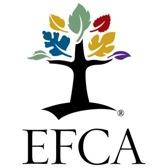 I’m an evangelical. I am a member of the Evangelical Free Church of America and hope to be ordained there and someday to serve as a pastor in that denomination. It isn’t perfect, but it is pretty good. One of the “quirks” of the denomination was our statement of faith. It was written in the 1950s and feels like it was addressing the issues of those days. It was a decent statement; broad but good on the essentials. Generally.
I’m an evangelical. I am a member of the Evangelical Free Church of America and hope to be ordained there and someday to serve as a pastor in that denomination. It isn’t perfect, but it is pretty good. One of the “quirks” of the denomination was our statement of faith. It was written in the 1950s and feels like it was addressing the issues of those days. It was a decent statement; broad but good on the essentials. Generally.
Anyway, this summer we finally got a rewrite of the statement approved at a national conference. It is organized better and is centered on the gospel primarily. As Colin Hansen points out, the significant thing about this is we did it without controversy. That is to say, we didn’t change it during or after a controversy and though there was some opposition and some compromise, there hasn’t been a large squawk or exodus after the adoption. I like what Colin says in his article, “If it ain’t broke, fix it.” We didn’t wait till we faced an uprising of Open Theism in the denomination before we tightened the statement on the foreknowledge of God, for example. The rest of Hansen’s article is spot on and worth looking at if you’re scratching your head and wondering why on earth I’m in the EFCA and not your denomination. Might not convince you, but it kind of explains it. :)
But I said “almost entirely” about my pride. One of the things that doesn’t belong in a statement of faith is an eschatology. If you look at the creeds and confessions of Protestantism throughout the ages, you’ll notice that they all speak of eschatology in broad terms. So where the EFCA statement is broad on the question of Calvinism vs. Arminianism, it is fairly specific on eschatology: premillinnialism. My postion is kind of a weak kneed premill with a post-mill confidence in the gospel and an amill appriciation for Christ’s current reign (the best kind of “panmillennialism” in my opinion!) But I don’t believe the premill statement belongs in the statement of faith. Early drafts excluded it but some pastors opposed that exclusion strongly. So it is back in. For now. We’ll see if we can revise it later.
There are Free Churches who simply overlook that part and say that they don’t care what your position is but part of the impact of the premill statement isyou can only be ordained if you’re premill of one variety or another. Also, teachers at TEDS, our denomination seminary, must be premill. That restricts the pool significantly. Could you image if we could have picked up someone like John Frame when he left WTS-CA? That would have been a huge benefit to the school. Oh well, we have a new statement and it is better than the previous one. We can work out the remaining kinks as time goes on.


2 Comments
Tim, I agree completely. When I graduated from seminary in 1991, the EFCA was one of the denominations I would have been proud to serve. But the pre-mil point disqualified me from the get go. I understand the historical reasons why it was there in the 1950’s, but this would have been a great time to remove it from the statement of faith.
As far as the other changes, I think they are all great. You now have a much stronger statement, especially in light of our times. I just wish I could participate!
Bummer. You’d think that if the EFCA was going to “Fix” the statement, eschatology would be the beginning point. Leaving it is like fixing a sinking boat by repainting it.